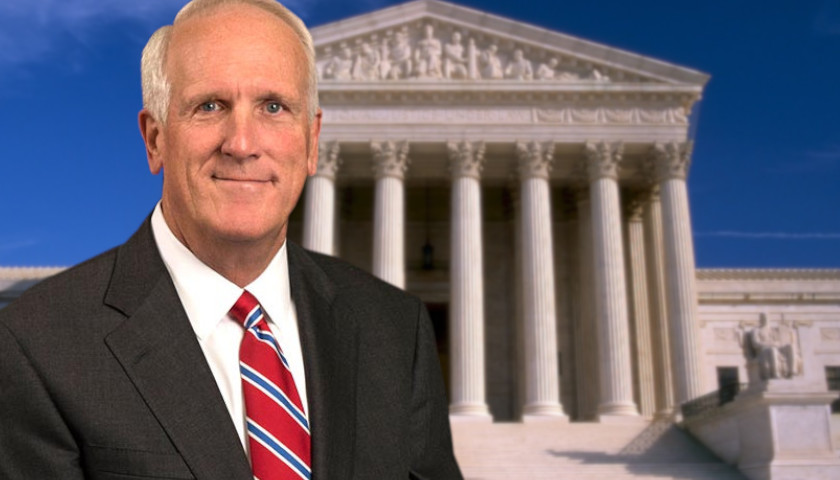Tennessee Attorney General Herbert Slatery announced Wednesday that he will support an Amicus Brief supporting the Texas election lawsuit before the U.S. Supreme Court.
As The Tennessee Star reported Tuesday, Texas officials filed a lawsuit directly to the U.S. Supreme Court challenging the election results in Wisconsin, Michigan, Pennsylvania, and Georgia. Texas Attorney General Ken Paxton argues that officials in those four states changed election rules without legislative consent, thus violating the U.S. Constitution.
In an emailed statement, Slatery, after joining Missouri’s amicus brief in support of Texas’s action in the U.S. Supreme Court, said:
The Tennessee Attorney General’s Office has consistently taken the position that only a State’s legislature has the authority to make and change election laws. This Office pressed that argument in cases defending Tennessee’s election laws against pandemic-related challenges and in amicus briefs in cases involving similar challenges in other courts. This is not something new.
Texas’s action in the Supreme Court seeks to vindicate the same important separation-of-powers principles, and that is why we joined Missouri’s amicus brief in support of that action.
As reported, the state of Texas has asked the U.S. Supreme Court to invalidate the election results in Michigan, Wisconsin, Pennsylvania and Georgia, arguing officials in those four battleground states violated the Constitution by making changes to how ballots were cast and counted without legislative approval.
The lawsuit filed late Monday night by Texas Attorney General Ken Paxton asked the justices to issue a temporary restraining order preventing the states “from taking action to certify presidential electors or to have such electors take any official action including without limitation participating in the electoral college.”
The suit argues that changes made by the state’s governors, secretaries of states and election supervisors were “inconsistent with relevant state laws and were made by non-legislative entities, without any consent by the state legislatures. The acts of these officials thus directly violated the Constitution.”
States are allowed in certain circumstances to appeal directly to the U.S. Supreme Court, bypassing lower federal courts, in disputes involving other states. Paxton argued the state of Texas was wrongly harmed by the unconstitutional acts of the other states.
– – –
Chris Butler is an investigative journalist at The Tennessee Star. Follow Chris on Facebook. Email tips to [email protected].





